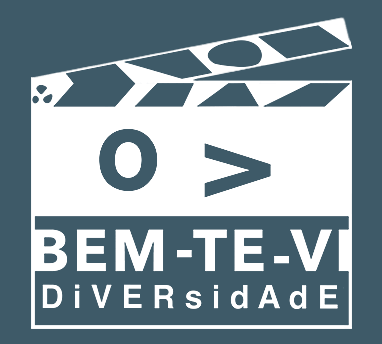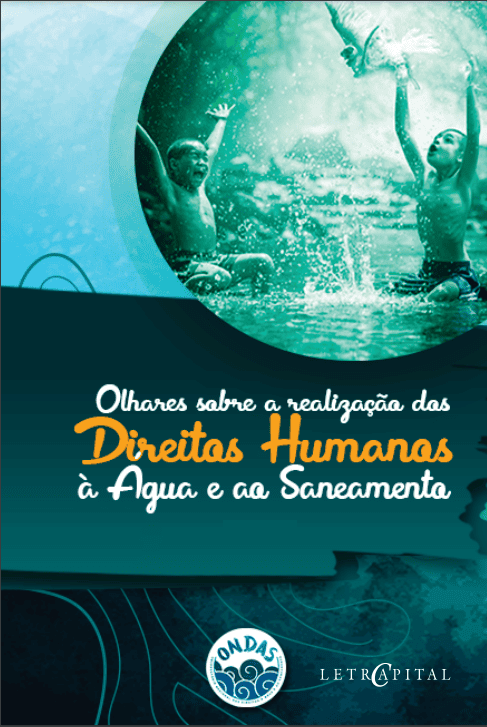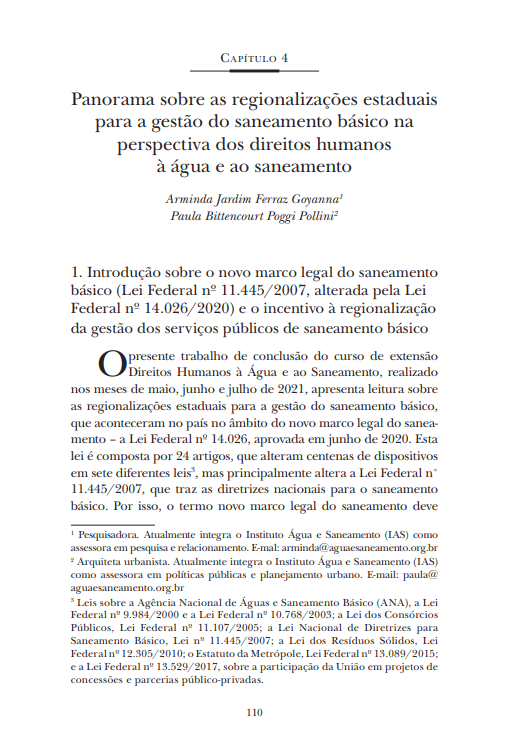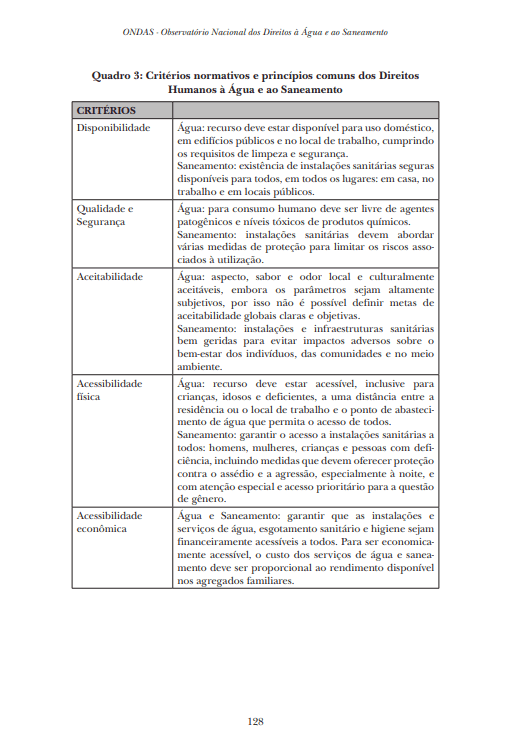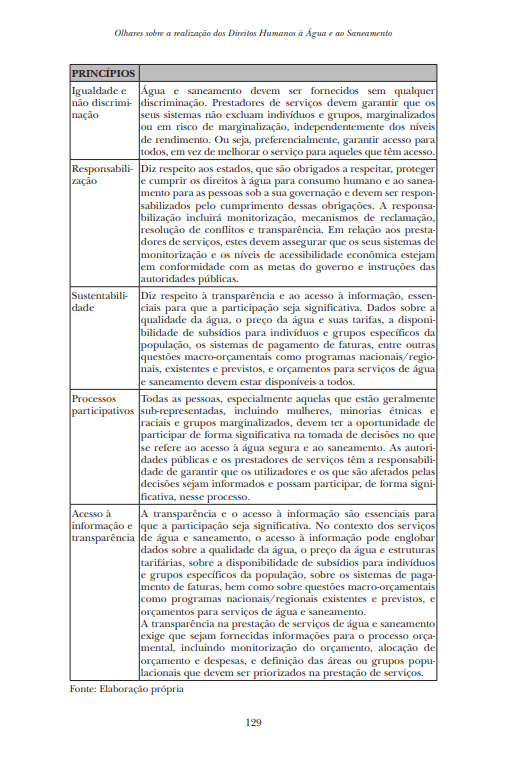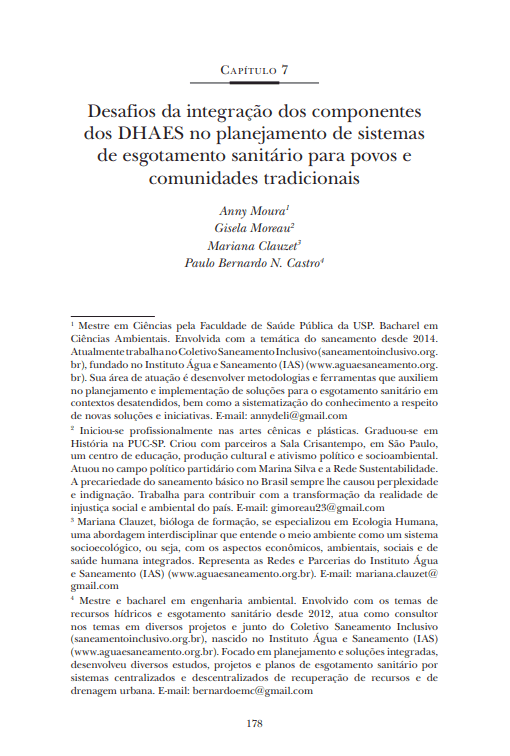PUBLICATIONS
Perspectives on the Human Rights to Water and Sanitation
October 20, 2021
This publication is the result of the course on the Human Rights to Water and Sanitation, organized by the National Observatory for the Human Rights to Water and Sanitation (ONDAS). Two of the texts were written by members of the IAS, Chapter 4, “Overview of state regionalizations for sanitation management from the perspective of the human rights to water and sanitation”,by Arminda Jardim, consultant in Research and Relationship, and Paula Pollini, Public Policy and Urban Planning advisor; and Chapter 7, “Challenges of integrating DHAES components in the planning of sewage treatment services for traditional peoples and communities”by Gisela Moreau, of the IAS Deliberative Council; Mariana Clauzet, Networks and Partnerships, together with Anny Moura and Bernardo Castro, both members of the Saneamento Inclusivo (Inclusive Sanitation) organization.
Chapter 4 presents an overview of state regionalizations for sanitation management from the perspective of human rights to water and sanitation and is divided into two parts. The first part brings an overview of the regionalizations of states across Brazil one year after the approval of the new Sanitation Legal Framework 14,026/2020, presenting the status of regionalizations, the models and territorial criteria adopted, their particularities, and the elaboration processes of regionalizations. The second part summarizes the principles and criteria of the human rights to water and sewage treatment services, as well as an analysis of the presence and/or absence of these principles in federal legislation and in various states. The study ends by presenting some of the future challenges.
Chapter 7 analyzes the challenges of implementing sewage treatment in territories where traditional peoples and communities reside. Such populations are recognized for their distinct and ancestral relationship with nature and have a way of life and production closely related to the natural resources of biodiversity, representing ways of existing and perceiving the environment and basic services from a different perspective to that of urban industrial society.
Credits
Title
Perspectives on the Human Rights to Water and Sanitation
Coordination
Léo Heller, Marcos Helano Fernandes Montenegro and Ricardo de Sousa Moretti
General Editors
Letra Capital


